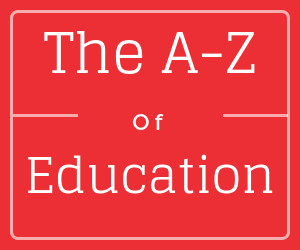Teaching & Learning Strategies, Concepts, and Terms That Every Teacher Must Know: Letters TR-TY

To be considered a competent educator, there are almost 2000 strategies, concepts, and terms that you must know. However, since teachers wear so many hats, who has the time to learn them all? Don’t worry; we have you covered. In this series, we will discuss all the teaching and learning strategies, concepts, and terms that you need to know to be considered an effective educator. There are over 70 articles in this series, so pace yourself. We recommend reading one piece per weekday, which will allow you to complete the series in three to four months. We hope you enjoy it.
Click here to read all the articles in this series.
Transactional Approach A model that takes a closer look at the intersection between individual characteristics and the environment. This approach is often used to provide a framework for early intervention because of its acknowledgment of both factors.
Transactive Relating to the active exchange of ideas between reader and text or speaker and listener to create meaning.
Transcript An official record of a student’s marks at a high school or institution of higher education.
Transdisciplinary Play-based Assessments A multi-disciplinary assessment approach in which a team of observers records different aspects of a student’s development during natural play using a protocol.
Transdisciplinary Team A team comprised of members from several different disciplines who are committed to learning, teaching, and working across several disciplines to provide more integrated services to a child.
Transfer Credit Credit that is given toward degree completion based on studies that were completed at another institution.
Transfer of Learning The application of information acquired in one particular situation to new contexts.
Transfer of Training The act of deriving a generalization from the specific process involved in recognizing certain unfamiliar words and applying it to other unknown words.
Transformational Operations Passive voice and conjoining sentences that come from the combination of both morphology and syntax.
Transient Otoacoustic Emissions (OAE) Sounds that are generated from inside the inner ear.
Transitional Bilingual Education A pedagogical structure or institution in which students are taught reading or other subjects in their native language for a few years before transitioning into English instruction.
Transitivity A skill acquired in the concrete operational stage of Piaget’s cognitive development theory in which individuals can mentally organize objects according to various features and patterns, and understand how they are related.
Transmediations An inquiry-based writing activity in which students change the medium of a work from its original form. For example, students might transmediate a poem into a picture book or song lyrics into a story.
Traumatic Brain Injury (TBI) An injury to the brain caused by an outside physical force. The result is often a total or partial loss of functioning, an impairment with social interactions, or a combination of the two. A traumatic brain injury and its side effects negatively impact academic performance.
Travelogues An inquiry-based writing activity in which students record their virtual visits to countries wherein a novel they are reading is set, a language they are studying originates, or a historic event has occurred. Travelogues can be created in various formats including a travel journal, a PowerPoint presentation, or a video.
Treatment Utility The usefulness of the measure to help influence future intervention and educational planning.
Triangulation An assessment of a child’s classroom performance that is based on information from several sources.
Triarchic Theory A theory which breaks intelligence into three areas – analytic, synthetic and practical. This theory was developed by Robert Sternberg.
Trigger An action, object or occurrence that sets off an emotional response in an individual.
True Score The hypothetical test result on an error-free assessment. Every standardized test has some degree of measurement error, so a true score can never be attained.
Trust vs. Mistrust In child development, these terms refer to the notion that the goal of infancy (from birth to 18 months) is to develop a basic trust or sense of trust of the world.
T-score Converts the results on an assessment to a mean of 50 and a standard deviation of 10 for ease of interpretation of results.
Tuition A sum of money that is charged by an institution per term, course or credit, in exchange for instruction and training.
Tuition Discounting Colleges provide discounted tuition to select students in the form of grant money and scholarships, allowing them to attend at a cheaper rate than the sticker price. In theory, such discounts can increase enrollment, leading to an overall increase in total tuition revenue for the university. In this context, tuition discounting appears to benefit all concerned: deserving, low-income students have access to a pricey college education, while the colleges can fill their classes with the kind of students that they desire and need.
Tuition Tax Credits Tuition tax credits provide families with an income tax credit for private school expenses that may include tuition and textbooks. Some states offer a tax deduction instead of a credit. Additionally, some states allow any family with an enrolled child to take a credit or deduction, while others limit eligibility for various factors such as income.
Turn Taking Rules and characteristics of a conversation that must occur for there to be order in the exchange. Without these rules in place, communication will break down.
Twice-Exceptional A term used to describe children who have exceptional talents in some academic areas and challenges in others. In some instances, a twice-exceptional student could theoretically qualify for both gifted and special education simultaneously.
Two-Way Bilingual Education A pedagogical structure or institution which uses dual language models to teach all students in both English and another language.
Typical Development The average or usual developmental pattern across children.

